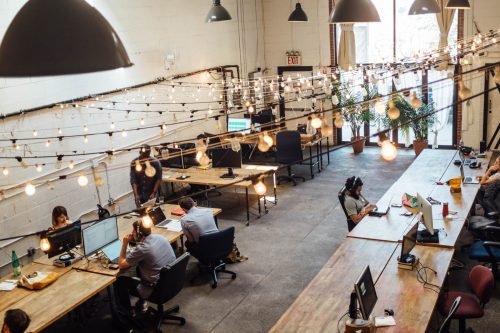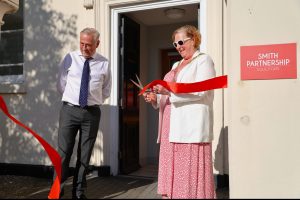Flexible working ‘improves wellbeing’, says new report

A survey of over 100 freelancers, small business and corporate employees has found that flexible working “could provide the key for delivering growth and productivity for businesses and improving people’s wellbeing in the future”.
In the survey, which asked people about how their working patterns to try and throw some light on what the future of work could look like, almost 95% of respondents believed or strongly believed that if people have control over how and when they do their work they are generally able to perform more effectively. Over 76% of respondents also agreed or strongly agreed that working from different environments such as home, coworking spaces or a change in office location enables them to be more productive.
More than 75% of respondents believed that businesses could operate more effectively by using more agile, self-employed temporary resource and 87% felt that business could lower costs by employing more flexible models of working and distributed teams.
While 95% of respondents felt that people could be trusted to work without supervision if the right support is available and, overall, responses show a positive shift in attitudes and perceptions towards flexible working, there is still some education to be done on exactly what it means
Han van Oudheusden, co-founder of collaborative coworking space Works Social, added: “The data we’ve had back has been fascinating. We wanted to challenge the notion that ‘flexible working doesn’t work’ and we have done just that. There is undoubtedly an appetite for greater flexibility in the workplace, while flexible working and coworking are fast emerging concepts, they are not yet fully understood and there is some education to be done, but it’s coming.”
Although people reported increased productivity and wellbeing, 46% of people did still feel guilty for taking time out of “normal working hours” and 51% felt stressed in trying to catch up on work they’d missed. There was a fairly even divide in people that felt flexible working undermined other people’s attitudes to how they worked and those that didn’t. Meanwhile, 84% of people felt more relaxed If they were able to work in a way that suited them.
In terms of getting the most from a talented UK labour market, Ross Cox, CEO at Dispace said: “I agree with the 95% of our respondents who felt we should be focusing our attention on delivery and effective communication without the need for set hours, days and locations for getting work done. To improve productivity and create a positive sense of wellbeing among employees, we should make it easier for people to be employed by increasing our use of teams that work remotely and on flexible hours.
“For businesses to be successful in the future they should be providing access to a range of workspace solutions that suit the current and future needs of an individual on a day to day basis. That might be reliable technology, coworking, remote teams, virtual meetings or sharing time between home and office working.”
The survey was curated by a collaboration of flexible workspace, coworking and digital nomad ambassadors Dispace, Works Social, and Big Old House.









